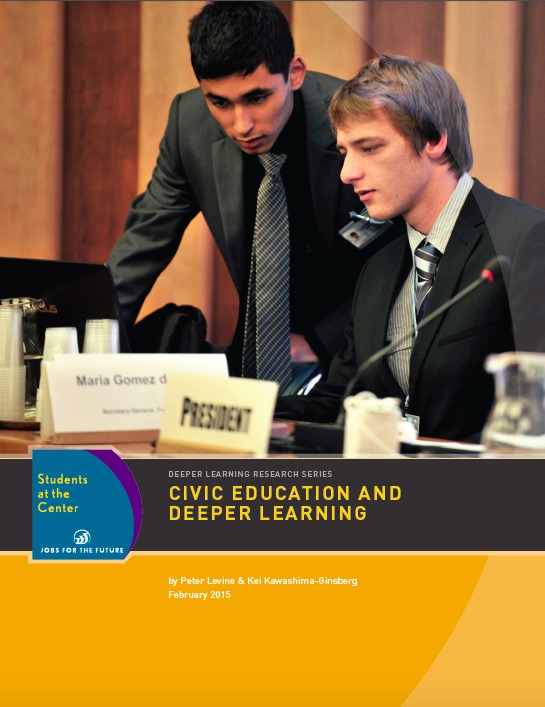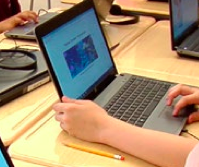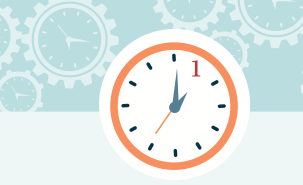Civic Education and Deeper Learning

This report, authored by Peter Levine and Kei Kawashima-Ginsberg, proposes that the turn toward deeper learning in education reform should go hand in hand with a renewed emphasis on high-quality civics education. Not only does deeper learning have great potential to promote civic outcomes and strengthen our democracy but, at the same time, civic education… Read More ›
Supporting Student Success Through Time and Technology

This report details the current blended learning approaches at six expanded learning time schools across the country, and highlights their lessons learned. Additionally, it outlines seven design and implementation steps for practitioners interested in using technology to personalize student learning. Supporting Student Success is a guide for district leaders and school practitioners interested in implementing… Read More ›
It’s About Time: Lessons from Expanded Learning Time in Meriden, Conn.

This handbook was created for unions and districts who are interested in, or working towards, putting an expanded learning model into place in traditional community schools. It’s About Time provides lessons learned from Meriden, Connecticut, following the planning, design, implementation, and plans for scale of this model, detailing the collaborative efforts of the Meriden Public Schools and the… Read More ›
Making Writing Essential to Teens Lives

This guide on teen-writing includes interviews with inspiring teachers, tips, and a diverse collection of student writing projects from across the country-all with a public audience in mind. The guide also includes resources for teaching writing in a student-centered way. Source Organization: What Kids Can Do VISIT THE RESOURCE
Students as Allies in Improving Their Schools

What if teachers and students became steady allies rather than frequent adversaries in their daily classroom encounters? With support from MetLife Foundation, What Kids Can Do has explored this question for several years in an initiative called “Students as Allies.” In Chicago, Houston, Oakland, Philadelphia, and St. Louis, What Kids Can Do has collaborated with… Read More ›
Gaining Attraction: Urban Educators’ Perspectives on the Critical Factors Influencing Student Achievement

This study finds that higher performing schools displayed greater focus and competency in three broad areas of practice: leadership and staffing; school culture; and curriculum and instruction. The study report outlines specific strategies employed by higher performing schools with respect to each of these areas of practice and presents illustrative case vignettes drawn from these schools.… Read More ›
Student Research for Action

From 2003 – 2006, What Kids Can Do provided competitive grants to high school students nationwide, inviting them to tackle important school and community issues. Here we provide a rich archive of this initiative. Student Research for Action sends several critical messages: that complex problem solving, independent judgment, and teamwork merit a place in every… Read More ›
The Schools We Need: Creating Small High Schools That Work For Us

What’s so different about a small high school, compared to a large one? When school leaders decide to create more small schools in their district, how do students experience the change in their everyday routines, as well as in their sense of power and possibility? In this publication-a joint effort of What Kids Can Do,… Read More ›
The Walmart Foundation’s 2011 Investment in Summer Youth Employment: Encouraging Results and Lessons Learned

In Spring 2011, the Walmart Foundation funded summer employment opportunities for youth in five cities – Chicago, Detroit, Los Angeles, New York, and Washington, DC. A team from the Center for Youth and Communities at Brandeis University’s Heller School visited all five sites, interviewing administrators, partners, and employers and observing program operations. This report summarizes… Read More ›
Innovating Under Pressure: The Story of the 2009 Recovery Act Summer Youth Employment Initiative

This study documents the implementation of the ARRA summer youth employment initiative in four featured communities: Chicago, Illinois; Detroit, Michigan; Indianapolis and Marion County, Indiana; and Phoenix and Maricopa County, Arizona. This report describes the local context for implementation, provides insight into specific assets and innovations that were used to achieve the community goals, identifies… Read More ›
Liberty Mutual Mentoring Initiative: Mentoring. Modeling. More.

This report highlights key findings of the multi-phased research study conducted by the Donahue Institute. In 2003, Liberty Mutual launched the Liberty Mutual Mentoring Initiative (LMMI), a $1 million commitment to mentoring that provides grants and technical assistance to mentoring programs throughout Massachusetts, as well as funds relevant to research. In 2004, Liberty Mutual, in… Read More ›
Unfinished Work: Building Excellence in Washington DC’s Summer Youth Employment Program

This study by Brandeis University identifies best practices and examines the potential of Washington DC’s Summer Youth Employment Program (SYEP) as currently organized to provide the city’s young people with an introduction to work, with opportunities to earn money over the summer, and with positive learning experiences that support their future employability. Source Organization: Center… Read More ›